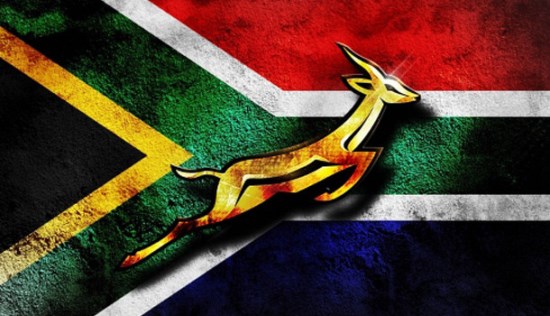 Local rugby supporters finally have a reason to smile.
Local rugby supporters finally have a reason to smile.
The plan by the SA Rugby Union (SARU) to stem the enormous exodus of top players heading overseas, by way of joint contracts with its unions is gaining some momentum.
Rugby World Cup tough guys Damian de Allende, Lood de Jager, Eben Etzebeth and Frans Malherbe are among the list of about 20 players with whom SARU has already signed contracts.
The full list of names has not been made available, but it was confirmed that Tendai ‘Beast’ Mtawarira, Trevor Nyakane, Adriaan Strauss, Coenie Oosthuizen, Pieter-Steph du Toit, Marcell Coetzee, Siya Kolisi, Handré Pollard, Pat Lambie and Jan Serfontein had also been contracted and could look forward to competitive salaries in line with those of Springboks playing overseas.
SARU confirmed on Friday it would release more information soon. Only then would it be possible to get a better idea of the exact term of the contracts.
After his performance in The Rugby Championship and the Rugby World Cup, Jesse Kriel should also have signed a joint contract.
Arno Botha, Marcel van der Merwe and Rudy Paige are other players SARU would have talked to about a contract.
Oupa Mohoje, Lwazi Mvovo and Cobus Reinach’s union contracts could be improved by SARU to make it more financially worthwhile for them to choose to play their rugby in South Africa for longer.
Willie le Roux will be playing his domestic rugby for the Cell C Sharks, but because he’s going back to Canon Eagles (his Japanese club team), at the end of 2016, he’ll only be considered for a joint contract from 2017.
The position of players such as Lionel Mapoe, Faf de Klerk, Elton Jantjies, Warren Whiteley, Nizaam Carr, Franco Mostert and Scarra Ntubeni is still uncertain.
The initial plan was that joint contracts would be offered to about 45 top players, but that turned out to be financially impossible.
Moreover, SARU could not prevent several senior players, including Duane Vermeulen and the Du Plessis brothers (Bismarck and Jannie), from going to play overseas.
Vermeulen was even offered the Springbok captaincy should he stay, but his contract with Toulon, estimated to total R 45 Million over 3 years, is far more than SARU can match.
Although SARU gets a bigger say over its Springboks with the joint contracts, it still doesn’t have the sole say, as is the case in New Zealand, with its central contracts.
SARU’s contribution to the joint contracts is different for every player. In some cases, SARU might pay up to 70% or even more of a player’s contract and, in other cases, less.
The players’ respective unions contribute the rest of their contracts. The New Zealand Rugby Union pays 100% of its central contracts.
Nevertheless, these developments are seen as a major leap forward in guaranteeing that the big names still play Super Rugby for South African teams. With these contracts, SARU is also hoping to convince promising young players to play their rugby here.
A SARU spokesperson said the executive council had to make a decision on whether overseas players would still be considered for the Springbok team in future. It’s even possible that from now, restrictions could be placed on the number of overseas players the Springbok coach may consider for the team.
The decision on whether an overseas player like Duane Vermeulen or Francois Louw would in future be allowed to captain the Springboks would have to be taken by the SARU General Council, the SARU spokesperson said.
During the Rugby World Cup, Fourie du Preez became the Springboks’ 1st ever overseas-based captain.
Sport24
A step in the right direction. But it does put the new coach in a difficult position, as he will be forced to select the contracted players.